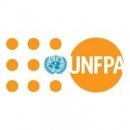Senior international Consultant
Closing Date: 10 of October 2024
Post Title: Senior international Consultant- Impact of War on the Maternal Health in Gaza.
Job Category: Humanitarian and Emergency Response
Position #: 21043
Duty Station: Gaza
Hiring Office: United Nations Population Fund- Palestine Country Office
Background
It has been ten months since the Israeli Military operation in Gaza started following the events on 7th October. The war has resulted in many deaths, injuries and massive and multiple displacements. OCHA reports indicate that 88% of the Gaza strip has been evacuated. Forced displacement has greatly affected delivery of and access to health services for the entire population, with a significant impact on pregnant women and children. During conflicts, natural disasters and public health emergencies, sexual and reproductive health needs are often overlooked – with staggering consequences. Pregnant women risk life-threatening complications without access to delivery and emergency obstetric care services. Women and girls may lose access to family planning services, exposing them to unintended pregnancy in perilous conditions. Women and girls also become more vulnerable to sexual violence, exploitation and infections. Excess maternal, newborn and fetal mortality and severe morbidity are among the main consequences of emergencies. The humanitarian crisis in Gaza has reached unprecedented levels following the events of 7th October, severely impacting the overall health infrastructure, with particular concern for maternal health and sexual and reproductive health (SRH). The escalation in violence, displacement, and limited access to essential health services have exacerbated existing vulnerabilities, placing maternal health at significant risk. At the same time, the health information system has been severely compromised by the current situation, especially after the central server for health data collection was destroyed in Shifa hospital in November 2023.
While health and other humanitarian partners are working towards supporting the reconstruction of the Health Information System, anecdotal data at health facility level shows an upward trend in negative pregnancy outcomes since the war started, while an increase in home deliveries has been reported (although not sufficient to explain the overall decrease in facility-based births). Additionally, initial estimates from the MISP calculator, based on pre-existing health data are not adequately capturing the situation and there have been some observed significant deviations from those estimates, for instance in the number of deliveries per month. Given the good health seeking behavior of Gazans before and during the war, it is imperative that a deeper understanding of the impact of the war on maternal health is undertaken. UNFPA is therefore undertaking this rapid study to generate a better understanding of the current status of maternal health outcomes in Gaza and explore the contributing factors
Purpose of consultancy:
The main objective of the study is to explore and understand the impact of the war on maternal health outcomes in Gaza, with a particular focus on analyzing how the crisis affects the following: -
Maternal Mortality: maternal deaths outcomes, exploring frequency, occurrence and causes. To the extent possible, neonatal deaths and infant mortality will also be addressed, and needs for additional research on these topics will be identified.
- Maternal Near misses during pregnancy and childbirth.
- Maternal morbidity :pregnancy complications e.g.: anemia, gestational hypertension, acute Jaundice syndrome, sepsis
- Conception patterns: Family planning/contraception trends, unmet needs, and social and behavioral patterns that might have impacted fertility rates. This will be done mostly from a qualitative perspective.
- Pregnancy outcomes: miscarriages, spontaneous abortions, stillbirth, preterm birth and low birth weight and mental health outcomes
- Phenomenon of home deliveries due to lack of access to and availability of services, as well as other possible reasons to explore
Scope of work:
Proposed Approaches
UNFPA proposes a blended approach involving both an international and a national consultant for the entire time of the study. The international consultant as the principal investigator will be responsible for recruiting the national consultant in consultation with UNFPA.
General Objective
Identify linkages between the current emergencies in Gaza and Sexual and Reproductive Health outcomes, to provide a complete overview on the main indicators and evidence-based explanations on major trends (e.g.: increase in pregnancy and childbirth complications, etc.)
Specific objectives
The specific objectives are:
-Describe and analyze the effect of the current status on Maternal Mortality: maternal deaths outcomes and identify linkages and possibly causal factors linked with the emergency situation
- Describe and analyze the effect of the current crisis on Near misses during pregnancy and childbirth and identify potential linkages and causative factors associated with the emergency situation
- Describe and analyze conception and contraception patterns: Family planning/contraception trends, unmet needs, and social and behavioral patterns that might have impacted fertility rates
Investigate and analyze the current status and impact of the emergency on of maternal morbidity in pregnancy: anemia, gestational hypertension, acute Jaundice syndrome, sepsis and identify linkages and possibly causal factors linked with the emergency situation
- Analyze the current status and the impact of emergency on pregnancy outcomes: miscarriages, spontaneous abortions, stillbirth, preterm birth and low birth weight and mental health impacts on mothers experiencing these outcomes , and identify linkages and possibly causal factors linked with the emergency situation
- Describe and analyze the phenomenon of home deliveries in Gaza in the current situation
Deliverables
● Inception report: with detailed objectives, clear methodological instruments and sampling methods.
● Study instruments in both English and Arabic (for individual interviews).
● Final comprehensive report: A detailed analysis that describes the effects of the crisis on maternal mortality (and to the extent of possible neonatal and infant) , near misses pregnancy and childbirth outcomes, incorporating statistical data, case studies, and expert interviews. Infographics: comprehensive visual summary of the study
● Presentation of findings at SRHWG, health cluster and inter-agency committee in Gaza, and at other platforms as might be needed.
Methodology
UNFPA expects the international consultant to collaborate with a national consultant of their choice, inside Gaza, and to provide UNFPA a justification of this selection. Proposed approach/suggested methodology: To facilitate and coordinate the study, to provide technical guidance and ensure consensus, an interagency advisory technical committee, composed by UNFPA (chairing organization), WHO, UNRWA, MOH and two representatives of NGO with largest coverage of SRHR interventions in Gaza will be established at the beginning of the study. Specific TOR of the committee with composition, roles and responsibilities of each agency will be drafted in the inception phase. The committee will convene on a weekly basis, and the consultant should provide updates on progress of the study at those meetings. The committee and the consultant will liaise to the maternal mortality and near misses committee if reactivated during the time of the study, or with their former members. The study will also capitalize on the findings from the ongoing UNRWA study.
The Study should answer the following key questions:
What are the prevailing rates of maternal mortality in the context of the current emergency, and how do these rates compare with pre-emergency levels?
● What observations are made concerning neonatal and infant mortality and what should future research look at?
● What specific factors linked to the emergency are contributing to changes in maternal mortality rates?
● How has the current crisis affected the incidence of near misses during pregnancy and childbirth?
● How has the emergency influenced the prevalence of maternal morbidity conditions such as anemia, gestational hypertension, acute jaundice syndrome, and sepsis?
● Which factors related to the emergency are most significantly associated with changes in maternal morbidity rates?
● In what ways has the emergency impacted the rates of miscarriages, spontaneous abortions, stillbirth, preterm births, and low birth weights?
● Across all areas of maternal health examined, what are the common causal or contributing factors linked to the emergency situation?
The consultants will be responsible for the following tasks:
1. Inception Phase: Rapid literature review and study design
- Prepare an inception report, which should entail a detailed methodology including any tools that are going to be utilized.
- Conduct a thorough review of existing assessments, national health reports, situations report, studies, modeling studies, health facility data, health services dashboards and data related to maternal health in Gaza, on the period pre and post 7th October.
- Review international and local guidelines and frameworks relevant to maternal health in humanitarian settings
2.Data Collection and Analysis: o Review the available data on SRH until 2nd of November (date when the server was destroyed), in collaboration with the PHIC department of MOH
- Review facility-based registries with maternal health data
- Collect data from affected population in order to bring qualitative dimension to the quantitative findings (women at hospital, etc.), strictly abiding to ethical principles
- Collect data from key stakeholders, including SRHTWG partners (government representatives, national nongovernmental organizations (NGOs), and international non governmental organizations INGOS), healthcare providers affected populations, UN sister agencies mainly UNRWA, UNICEF and WHO
- Analyze the data to identify trends, challenges, and impacts on maternal health
3. Stakeholder Consultations:
- Organize and facilitate consultations with relevant stakeholders, including government bodies, international organizations, local NGOs, and community representatives.
- Gather insights on the specific needs, challenges, and opportunities for improving maternal health and SRH in the current context.
4. Reporting and Recommendations:
- Prepare a comprehensive report detailing the findings of the study, including an analysis of the effects of the crisis on maternal health and SRH. Based on collected evidence, the report should include formulating hypothesis about determinants of maternal and newborn outcomes during the crisis,
- Present the findings and recommendations at different platforms to relevant stakeholders, including UN agencies, NGOs, and government representatives.
5.Ethical principles to be followed during the study:
Privacy and confidentiality in all phases of data collection, analysis and presentation, including obtaining informed consent.
● Accountability: Be responsive to public and stakeholder feedback and correct any misreporting.
● Accuracy and Reliability: Employ robust methodologies and clearly describe them.
● Cultural Sensitivity and Respect: Respect local norms and avoid perpetuating stigmas.
● Impartiality and Objectivity: Maintain neutrality in data handling and presentation.
● Transparency: Be open about data sources and collection methods.
● Participation: Involve local communities, to the extent possible, to ensure diverse perspectives and enhance relevance.
● Beneficence: Use SRH data to improve public health outcomes and inform policy development
● Non-Maleficence: be aware of and avoid potential harm caused during the implementation of the study and presentation of its findings
Duration, Location and working schedule:
An international lead consultant and a national local consultant will be hired for the mission. The duration of this consultancy will be 45 working days total, effective as soon as possible. The international consultant will be based in their home country. If feasible, a short mission to Gaza will be carried out.
Delivery dates and how work will be delivered (e.g. electronic, hard copy etc.):
The consultant will submit the draft versions of deliverables to UNFPA, which will organize the revision with the inter-agency steering committee. All the below deliverables are submitted electronically through email to the SRHiE specialist ([email protected];) and the SRH team lead ([email protected] ):
- Inception report with the first seven days of the consultancy
- Data collection tools finalized within 14 days of the consultancy
- First draft report and infographics within 20 days of the consultancy.
- Validation meeting with key stakeholders within 30 days of the consultancy.
- Final draft report within 35 days of the consultancy
- Final report with 45 days of the consultancy
The consultant will start as soon as possible, ideally from September, and should complete the work before the end of October 2024.
Monitoring and progress control, including reporting requirements, periodicity format and deadline:
The consultant will work in close cooperation with the UNFPA-SRH team in Palestine, keeping them informed on a weekly basis. Reports will include; inception report, data collection tools, draft study report, stakeholder validation workshop report, final draft report (including infographics) and final agreed report by UNFPA.
Supervisory arrangements:
The consultant will work under the direct supervision of the SRHiE Specialist in Gaza, and overall guidance of the SRH team leader for Palestine CO.
Expected travel: Short mission to Gaza, if feasible, to be funded by UNFPA
Jobs.ps, Ltd. All Rights Reserved.
Qualifications and Experience:
Education:
Master degree in Medicine or other medical field, Social Sciences, Public Health, or other relevant degree.
Knowledge and Experience:
- 10 or more years of progressively relevant professional experience in literature review,
- Demonstrated experience in program analysis and evidence collection and knowledge management
- Ability to synthesize and convey information from multiple sources
- Excellent report writing, editing and presentation skills
- Previous experience with UNFPA or other UN Agencies is required
Languages:
Fluency in English is required. Fluency in Arabic is an advantage.
Required Competencies:
Values:
- Exemplifying integrity,
- Demonstrating commitment to UNFPA and the UN system,
- Embracing cultural diversity,
- Embracing change
Core Competencies:
- Achieving results,
- Being accountable,
- Developing and applying professional expertise/business acumen,
- Thinking analytically and strategically,
- Working in teams/managing ourselves and our relationships,
- Communication information and ideas/knowledge sharing;
- Self-management / emotional intelligence and conflict management / negotiating and resolving disagreements;
- • results orientation / commitment to excellence.
Functional Competencies:
- Technical expertise in research, evidence generation and knowledge management
- Results-based program development and management
UNFPA Work Environment:
UNFPA provides a work environment that reflects the values of gender equality, diversity, integrity and healthy work-life balance. We are committed to ensuring gender parity in the organization and therefore encourage women to apply. Individuals from the LGBTQIA+ community, minority ethnic groups, indigenous populations, persons with disabilities, and other underrepresented groups are highly encouraged to apply. UNFPA promotes equal opportunities in terms of appointment, training, compensation and selection for all regardless of personal characteristics and dimensions of diversity. Diversity, Equity and Inclusion is at the heart of UNFPA's workforce - click here to learn more.
Disclaimer:
Selection and appointment may be subject to background and reference checks, medical clearance, visa issuance and other administrative requirements.
UNFPA does not charge any application, processing, training, interviewing, testing or other fee in connection with the application or recruitment process and does not concern itself with information on applicants' bank accounts.
Applicants for positions in the international Professional and higher categories, who hold permanent resident status in a country other than their country of nationality, may be required to renounce such status upon their appointment.
Interested and qualified candidates can apply online through Apply Now-button below







